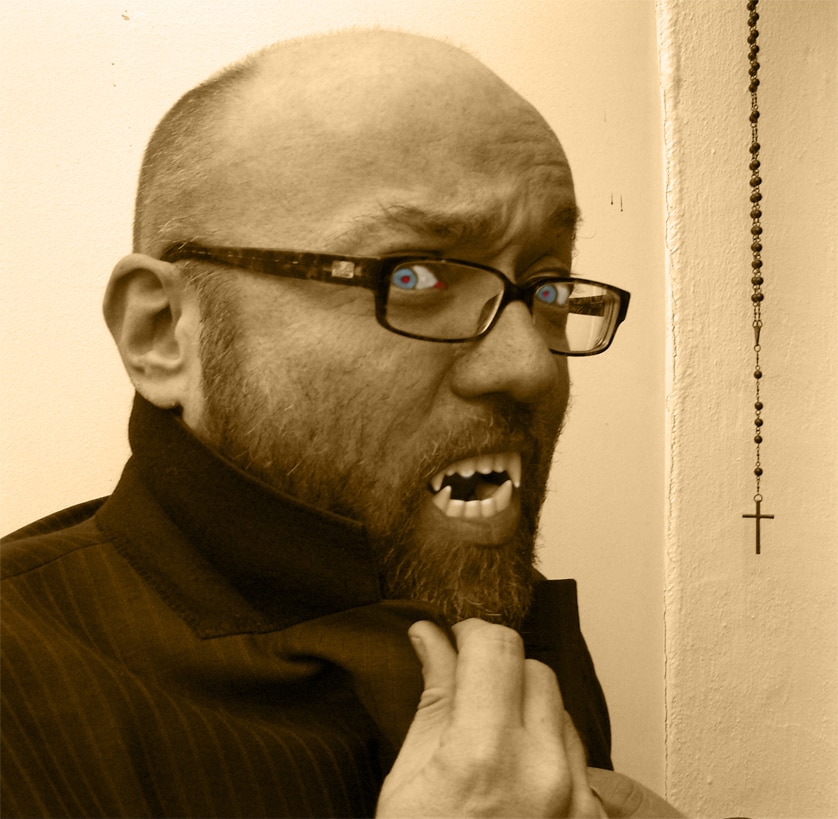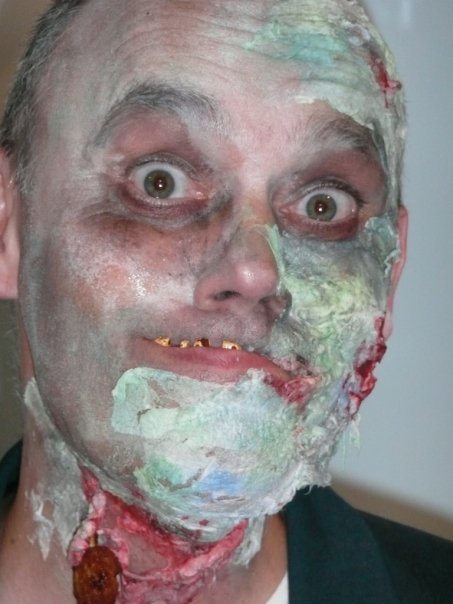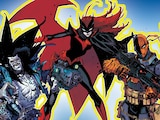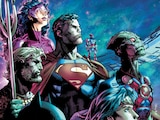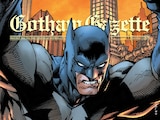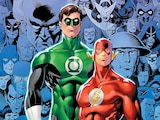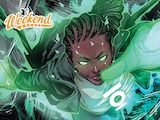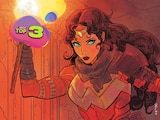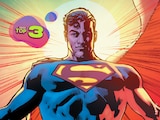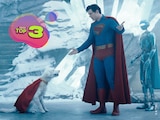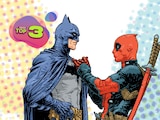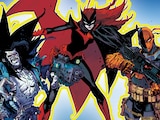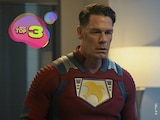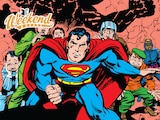The bogeyman. The monster in the closet. The things that go bump in the night. They show up, sometimes, in a good spooky story. But what gives us nightmares, what really keeps us up late at night, can't always be named. With Halloween just around the corner, we sent thirteen questions about horror to some of the smartest writers in the comic book industry to get to the heart of why we love horror. Scott Snyder, Joshua Hale Fialkov, Dan Abnett and Andy Lanning are all currently writing characters traditionally associated with horror. Paul Cornell's writing a dark fantasy book chock full of fear and the supernatural. Brian Azzarello, J. H. Williams III and W. Haden Blackman are injecting horror into superhero epics. They all took time out to share their thoughts on what we're calling the New Horror in DC COMICS-THE NEW 52. Their answers will run here on the SOURCE in three parts, but you can keep the conversation going on Twitter with the hashtag #thenewhorror. On Writing What is the most important ingredient to crafting a horror story? SCOTT SNYDER: Honesty. You have to write about what frightens you yourself, as a writer. Those fears can take the form of a certain kind of monster or ghoul, but they have to be there on the page. For example, Stephen King's Pet Semetery - it's about a guy who loves his son so much, he can't live with his death and so turns him nto a monster just to have him around. And he writes it when his kids are young. It's so scary to him he can't even finish at first. That's good horror. PAUL CORNELL: That it brings the reader nose to nose with the worst possible thing that could happen.
DAN ABNETT: Atmosphere is really important, along with timing and-- what was that noise? W. HADEN BLACKMAN: A very well-developed and believable protagonist that is at least somewhat competent. The more we can relate to the protagonist, the more terrifying it is to see her threatened by the "monster." But if we can't connect with her, or she does something moronic that alienates us, then we start rooting for the monster. BRIAN AZZARELLO: A threat to flesh. There's real terror in all of us about having the bag we inhabit split open. J.H. WILLIAMS III: I'd say it’s finding the single piece of the plot that skews every other aspect into something else, the key unexpected element. By doing this, you can present things that throw the reader or viewer off balance, and once they are, you've got them like a fish on a hook. JOSHUA HALE FIALKOV: Finding the identifying moment, the thing that really taps into a fear that every person on earth has. Whether that's making a mistake that haunts you for eternity (like Andrew) or losing someone you love (like Mary), finding the grounding to your story is what makes it genuinely haunting. What attracts you to writing the horror genre? DAN ABNETT: I dunno. Sitting alone here, at night, with only my own thoughts for company, I-- seriously. What was that noise? W. HADEN BLACKMAN: I just like writing what I'd like to read. JOSHUA HALE FIALKOV: It's way easier than comedy. Seriously, though, every story I tell starts in a place of "What's the worst thing that could happen?" and sort of extrapolates itself from there. So, even my books that aren't horror have a strong root in the genre. SCOTT SNYDER: I've always loved stories where characters face their worst fears, whether those stories are literary, mysteries, action stories... Horror (good horror) just lends itself easily to this idea though. PAUL CORNELL: It's a relief for the writer too. You know, this stuff isn't doing you any good if it's kept inside. Mind you, I wouldn't call DEMON KNIGHTS horror – it's more dark sword and sorcery. J.H. WILLIAMS III: What I find so attractive about it is that you tap into something that is very primal in all of us. And by doing so, you create an atmosphere of doubt in what the world is about. It causes a questioning of what is our reality. And Horror can be a great tool of getting someone to think about themselves or the world differently than they had before. Horror, if done well, is visceral but with intelligence. What horror cliche do you always aim to avoid? PAUL CORNELL: There isn't really a cliche that doesn't work, if done right, and we're talking about archetypes and nightmares here, so the recurring stuff can be mined many times. Mind you, in real life, I doubt anyone splits up to search the house. But what was the last movie when anyone did that? I mean, why did they do that the first time? BRIAN AZZARELLO: Giant ants. J.H. WILLIAMS III: I think it really is impossible to avoid clichés. Everything has been done before. So it becomes a matter of presentation, by twisting the idea into a new shape. SCOTT SNYDER: The girl running away from the killer, through the forest, in her nightshirt, tripping over a root. DAN ABNETT: He’s behind me, isn’t he? JOSHUA HALE FIALKOV: I think that they all work and they all suck, simultaneously. Finding ways to transmute these overused tropes into something new and fresh is the challenge. W. HADEN BLACKMAN: None. My preference is to take the clichés and try to reinvent them in some way. What is your favorite horror based character to write? BRIAN AZZARELLO: It was, and will always be John Constantine. Because unlike me, he actually likes it. PAUL CORNELL: I've only ever really written horror with my own characters. I mean, I got to use Dracula, but that was in super hero comics genre trappings. W. HADEN BLACKMAN: I like writing strong heroines -- as a kid, I was always a fan of Halloween and the original Nightmare on Elm Street, both of which I feel have resourceful and brave protagonists. I also really like monsters that are a bit tragic, like Frankenstein's Monster. J.H. WILLIAMS III: I like creating powerful female characters. It’s always so much more gratifying seeing a triumphant heroine than a male character for me. They are the more complexly motivated gender, and therefore much more fascinating. I also like classic monster types as well, but I think the strongest for me is trying to create something very nonhuman. Trying to create a horrific idea or creature that is hard to define by human standards. If successful, it can be a most terrifying story experience. Junji Ito, a master of horror manga is amazing at doing that. He quite often presents things that you cannot define, making them so much more scary because it cannot be explained. SCOTT SNYDER: Pearl Jones. DAN ABNETT: The one standing behind me. JOSHUA HALE FIALKOV: I can say that I'm jealous as hell of Lemire getting to have his way with Frankenstein's Monster.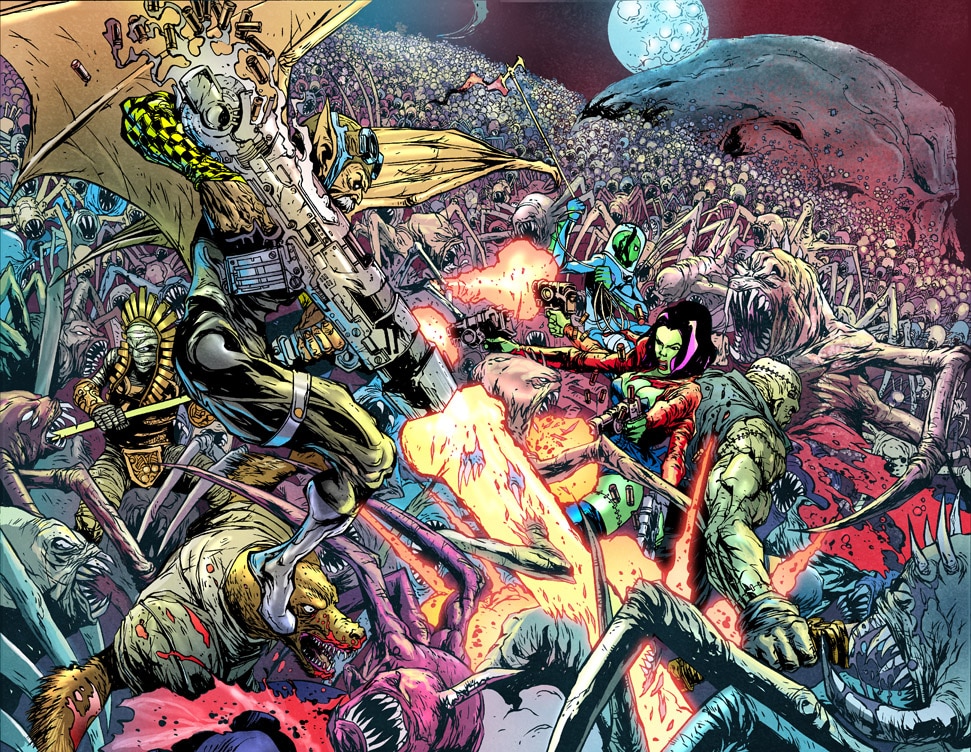 DC Comics
DC Comics

